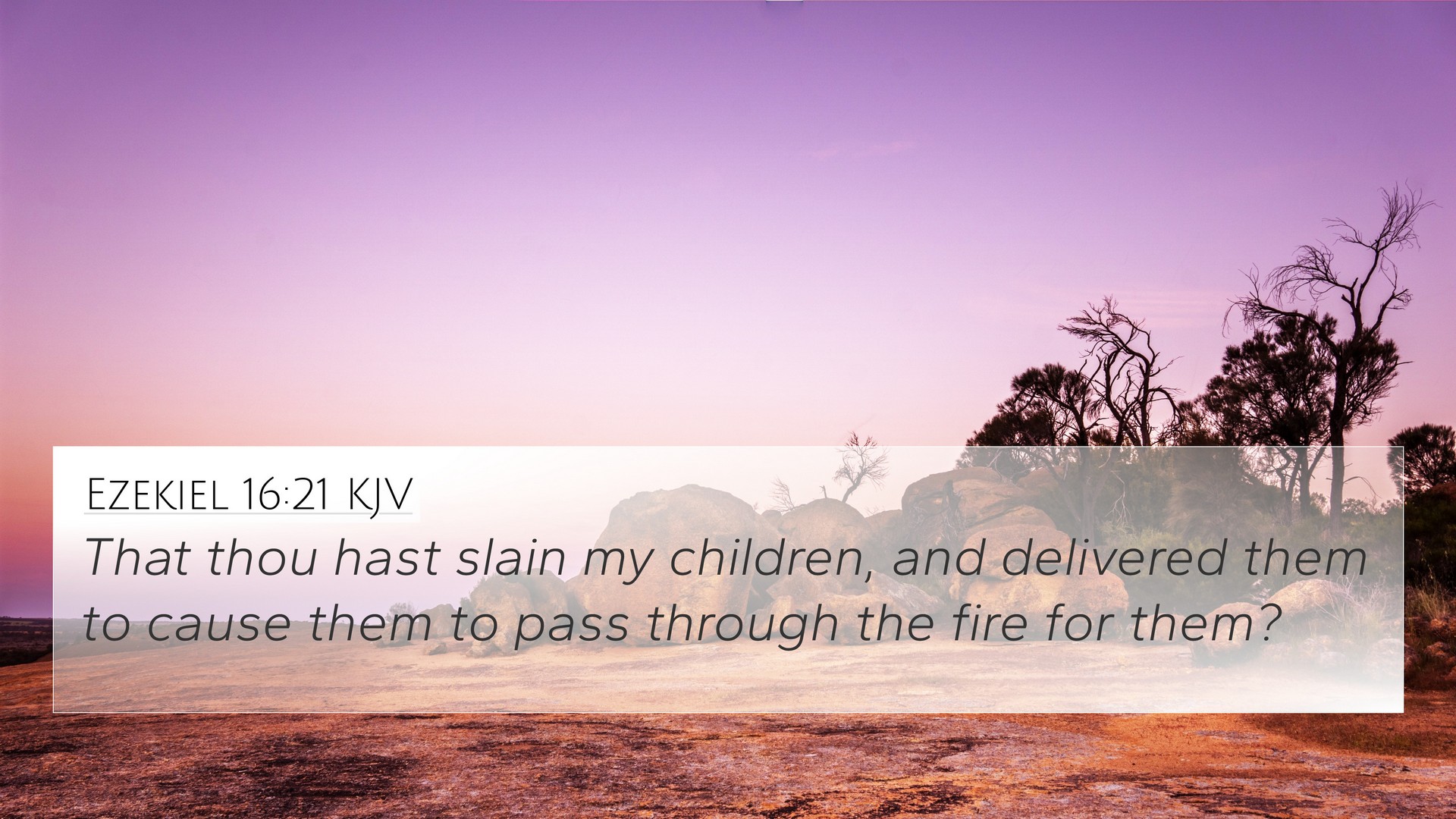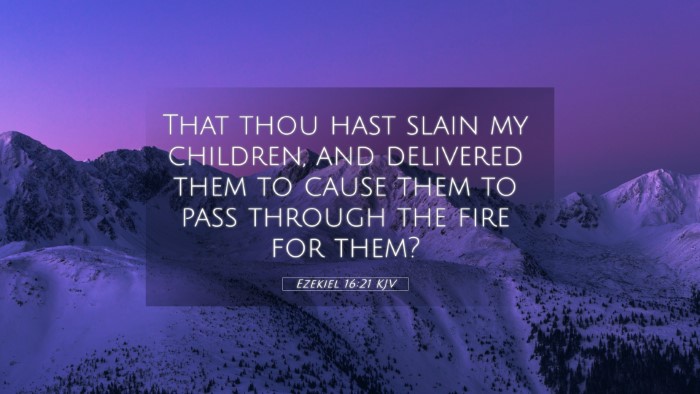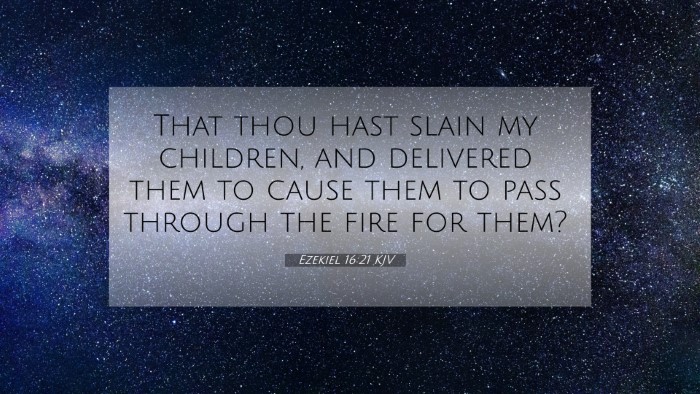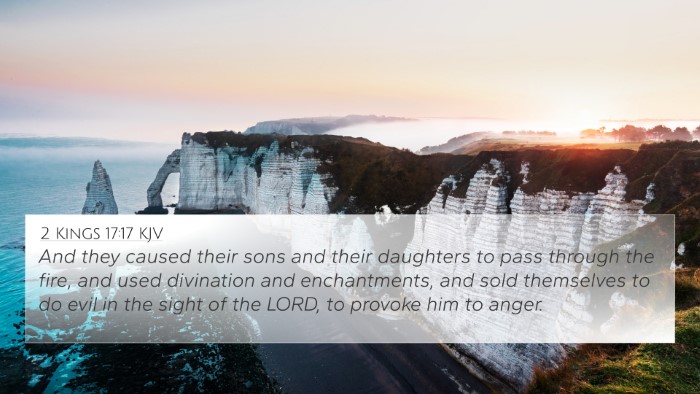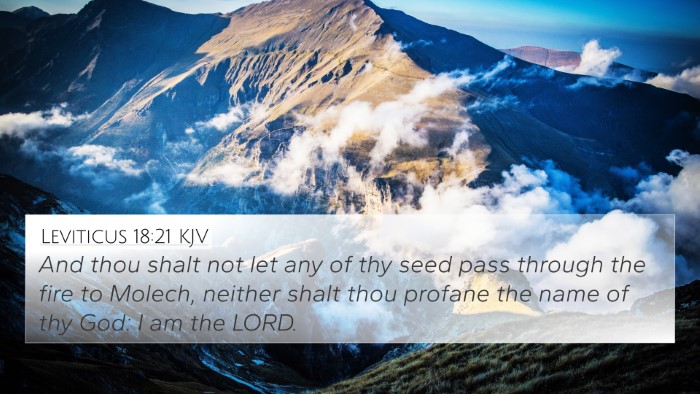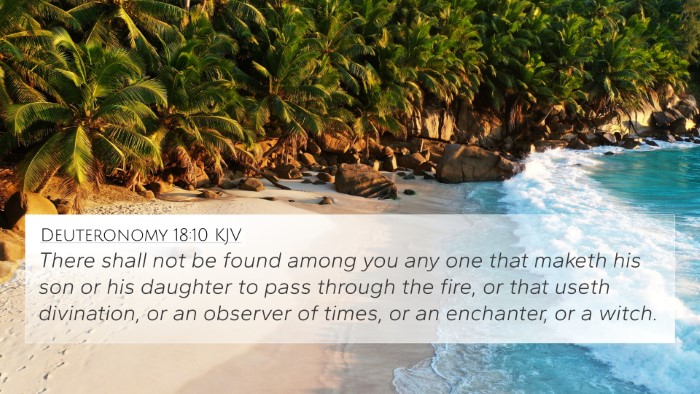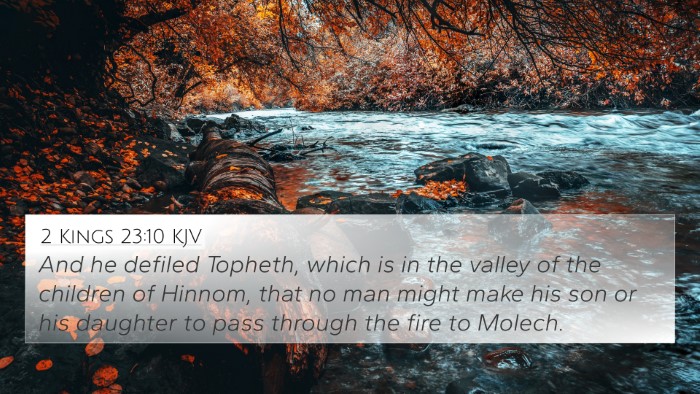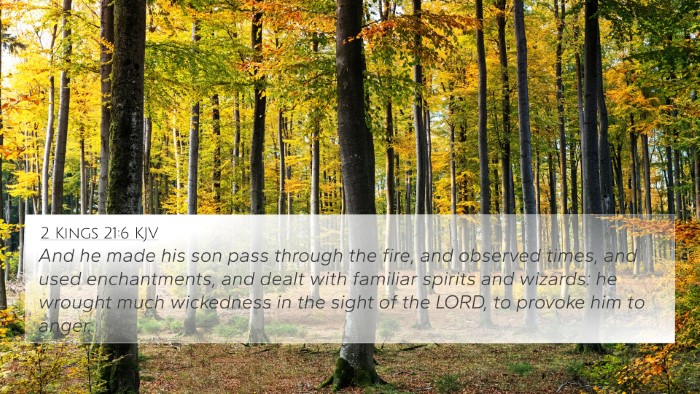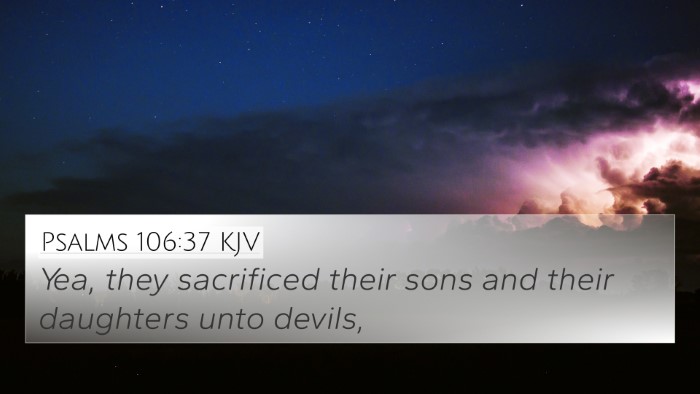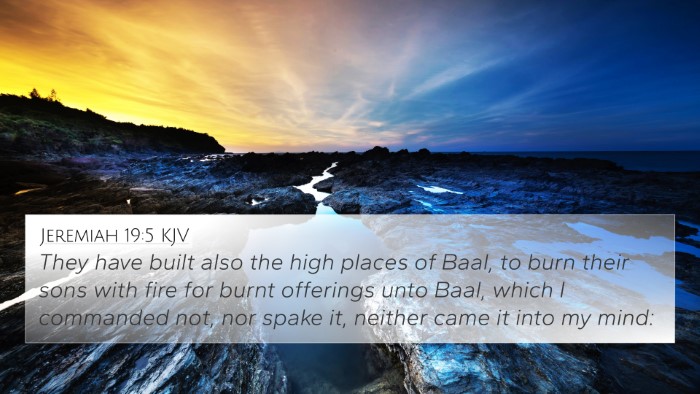Ezekiel 16:21 - Commentary and Interpretation
Verse: "And thou hast slain my children, and delivered them to cause them to pass through the fire for them."
Overview: This verse is part of a metaphorical depiction of Israel as an unfaithful wife who has betrayed her husband. The children symbolize the people of Israel, and the act of passing them through the fire represents the extreme idolatrous practices, including child sacrifice, that they engaged in.
Summary of Meanings from Public Domain Commentaries
Matthew Henry's Commentary
Matthew Henry emphasizes the gravity of Israel's sin, illustrating how the act of sacrificing children demonstrates a profound disobedience to God. He notes that such acts not only lead to the physical loss of innocent lives but also signify a deep spiritual corruption. In this light, the verse serves as a stark warning about the consequences of turning away from divine commandments.
Albert Barnes' Notes
Albert Barnes comments on the prophetic nature of Ezekiel's words, highlighting that the verse represents God's lament over the actions of His people. He points out the horror of child sacrifice and critiques the societal acceptance of practices that turn away from God's law. This commentary illustrates the intertwining of moral decay and spiritual rebellion within the context of the Israelite society.
Adam Clarke's Commentary
Adam Clarke provides a deeper look into the historical context of child sacrifice in ancient cultures, explaining how Israel had once fallen prey to these pagan rites. He discusses how this act was not only a betrayal of their covenant with God but a tragedy that resulted from the allure of surrounding nations. Clarke highlights the keen sorrow expressed by God in this verse, as it signifies a profound rupture in the covenant relationship.
Cross-References and Thematic Connections
This verse can be cross-referenced with several biblical texts to illustrate its themes and messages:
- Leviticus 18:21 - Prohibition against child sacrifice.
- 2 Kings 23:10 - Josiah's reforms against child sacrifice in Topheth.
- Jeremiah 7:31 - Condemnation of the practice of offering children to Molech.
- Romans 12:1 - A call for living sacrifices to God, contrasting spiritual devotion with idolatry.
- Psalms 106:38 - A lament over Israel's sacrifices of the innocent.
- Isaiah 57:5 - Condemnation of idolatry and child sacrifice.
- Galatians 5:20 - Enmity, idolatry, and other works of the flesh contrasted with spiritual fruits.
- 1 Corinthians 10:20 - The connection between idolatry and the sacrifice offered to demons.
Connections Between Bible Verses
The act of delivering children to the fire in Ezekiel 16:21 can be linked to themes of divine judgment and communal sin found throughout Scripture. The connections help illustrate how this ancient sin still resonates today.
Comparative Bible Verse Analysis
Comparing these verses reveals the consistent theme of God's disdain for idolatry and child sacrifice, tying the historical actions of the Israelites to lessons for contemporary faith. Analyzing these connections can deepen understanding of both Old and New Testament texts, illustrating the continuity of God's expectations for His people.
Tools for Bible Cross-Referencing
To enhance your study, consider using a Bible concordance or a comprehensive Bible cross-reference guide. These tools can aid in discovering connections between various scriptures and understanding overarching themes within the biblical narrative.
Long-Tail Keywords Implementation
This analysis shows how to find cross-references in the Bible effectively and identify connections between Old and New Testament teachings. Furthermore, it demonstrates how to relate the consequences of sin to the broader theme of redemption that runs through scripture.
User Intent Keywords
For further inquiry, one might ask: What verses are related to Ezekiel 16:21? or explore how do Ezekiel 16:21 and Leviticus 18:21 connect? Such questions can lead to rich explorations of biblical truths and narratives.
Conclusion
In summary, Ezekiel 16:21 serves as a powerful reminder of the consequences of idolatry and the seriousness of sin against God. By utilizing effective cross-referencing and exploring thematic connections in the scripture, one can gain deeper insights into the life-altering messages the Bible offers.
